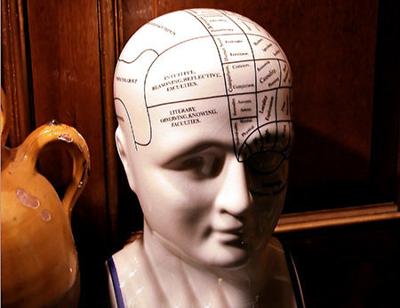
Chances are, autism has already touched your life in some way. According to the National Autism Association, autism is the fastest–growing developmental disorder in the U.S. FINE Magazine’s upcoming 3rd Annual Amazing Lace Event benefits children with autism and their families throughout the many hurdles they must scale in their lifetimes.
Ralph-Axel Müller, a renowned professor at San Diego State University, is making waves in autism research with his Brain Development Imaging Lab, also known as the BDIL. The lab is dedicated to the study of brain development and its disorders, with a specific focus on autism spectrum disorder.
Professor Müller grew up in Germany and attended the University of Hamburg overseas, where he was a Guest Lecturer and Visiting Scholar at the Graduate School of Cognitive Science. He moved to San Diego 15 years ago, residing as an Associate Research Scientist with the Department of Cognitive Science at UCSD for 7 years before transitioning to his current role as Professor of the Department of Psychology at SDSU. With all of the outstanding institutes and research facilities that sunny San Diego County has to offer, Müller believes that San Diego is the best place for his research.
But autism research has never been easy, and it’s certainly never been clear. Dr. Müller explains, "Ten years ago, scientists had come to the consensus that it is not one particular part of the brain that causes autism, but different parts that have contributed to abnormalities. Our lab has been the main driving force in debunking this." While there has been much progress in autism research over the past few decades, there is still no definitive cause or cure for the illness. Müller’s years of experience in the field mean he understands the importance of continuing intensive research: "The prevalence has gone up in the last twenty years with more than one percent; now, 1 in every 68 babies develops autism."
Pinning down the root is incredibly difficult, not only because it’s spread across all age groups, but also because both hereditary and environmental factors are involved in finding the root cause. Because the rate of autism has increased tremendously, environmental factors play an important role in research, including toxins in our atmosphere that weren’t around fifty years ago. Outside elements have entered the puzzle.
While researchers still have a long road ahead of them in finding a cause, they are hopeful. With new technological advancements, there’s optimistic hope placed in the ability to identify when autism is present prior to the development of the disease—nip it in the bud, so to speak, explains Muller.
Until then, exercise can do wonders for people suffering from autism. Studies have shown how physical activity is very effective for brain function in autistic humans. Surfers Healing, a non profit organization founded by surfer Izzy Paskowitz, is just one example of the many great services that have been created to help autistic children try things they never dreamed of before. This inspirational organization allows autistic children from around the world to get the opportunity to catch a wave and allows parents to catch a break.
Whether autism has struck close to home or remains on the outskirts of your daily life, it is undoubtedly a cause we should all champion. FINE Magazine’s 3rd Annual Amazing Lace Event is a great way to become connected in your community and do your part to help in the fight against autism.
Learn more about Professor Ralph-Axel Müller's Autism research go here


(0) comments
We welcome your comments
Log In
Post a comment as Guest
Keep it Clean. Please avoid obscene, vulgar, lewd, racist or sexually-oriented language.
PLEASE TURN OFF YOUR CAPS LOCK.
Don't Threaten. Threats of harming another person will not be tolerated.
Be Truthful. Don't knowingly lie about anyone or anything.
Be Nice. No racism, sexism or any sort of -ism that is degrading to another person.
Be Proactive. Use the 'Report' link on each comment to let us know of abusive posts.
Share with Us. We'd love to hear eyewitness accounts, the history behind an article.